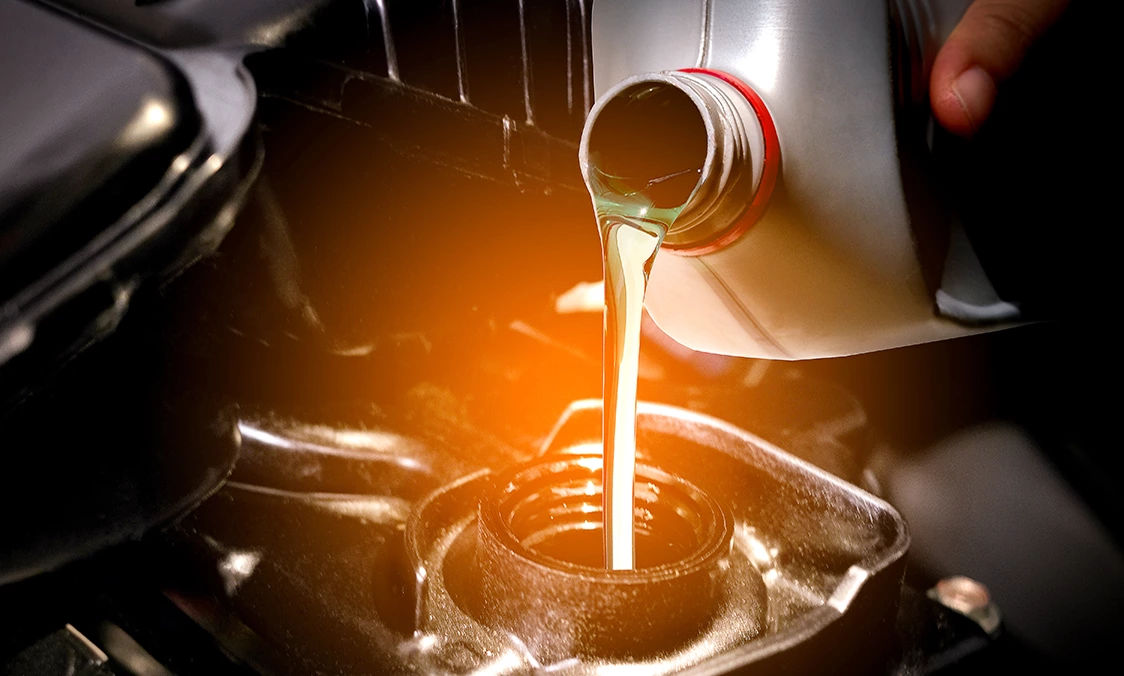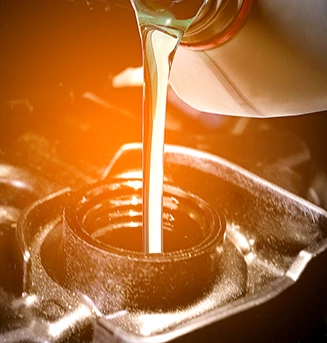Synthetic vs Regular Oil Changes
Whenever you visit your auto repair or
oil change shop for an oil change, you’ll face a choice: regular oil, or
synthetic?
Both can be good decisions, based on
your vehicle, the type of driving you do, and how often you want to change your
oil. But what is the difference between the two?
The answer is the composition, with a
little bit or marketing thrown in. Synthetic oil and regular oil both come from
the same base of highly refined crude oil. The differences emerge with the
additives and through an additional refining process. Synthetic oil also
includes some artificially-manufactured compounds as well as a ‘carrier oil’
that controls the size of the molecules and the equal distribution of those
compounds. It decreases friction between engine parts, reduces sludge build up,
increases overall performance and it lasts longer.
Some benefits of using synthetic oil over conventional oil are:
- Reduced engine emissions
- Improved fuel economy
- Increased engine protection through reduced friction
- Longevity
- Reduced engine dragImproved protection in all types of weather, like extreme heat and extreme cold
- Quicker engine start time
- Reduced engine sludge or deposits.
- Synthetic oils can often help clean out old sludge and deposits, too.
The main disadvantage is
that synthetic oil is more costly than conventional oil, so your maintenance
visits will tend to cost more. This can be offset, however, by going longer
between oil changes.
Many oil change and auto
repair service shops also offer different types of synthetic oils: full
synthetic oil and synthetic blends. It’s difficult to quantify the difference
between those two types, because there is no defined standard used to identify
full synthetic oil. Both are better, for the reasons stated above, than
conventional oil. Again, you’ll have to do your own cost-benefit analysis to
determine if it’s worth the additional money to go full synthetic, or if a
blend will work for you.
How often should you
change your oil?
You should change your
oil and your oil filter regularly, but the frequency depends on many different
factors, including the age of your vehicle, the type of driving you do, how
often you drive your vehicle and, of course, the type of oil you use.
Conventional oil changes
are suggested every 5,000 miles for more vehicles. If you do a lot of
start/stop city driving, you may want to change your oil more frequently.
Engines tend to run more efficiently at higher speeds—within reason, of
course—and if you start and turn off your engine frequently, it’s possible that
the oil will not get up to its ideal temperature and protect your engine as
effectively. You’ll also need to change it more frequently if you have an older
car, or a turbo-charged engine.
With synthetic oil, oil
changes are recommended every 10,000—or sometimes 15,000—miles. There are
performance synthetics that can extend the intervals between required oil
changes, too. The general rule, however, is that a synthetic blend will last
twice as long as a conventional motor oil.
Deciding between
conventional oil and a synthetic blend of fully synthetic oil is a personal
choice. Only you know what you can afford, the type of driving you do and the
type of vehicle you have. Using synthetic oil, because of its many advantages,
is usually cheaper and more efficient in the long run. You’ll have to do the
math on your own vehicle to verify that and determine if it’s the right choice
for you.
More articles from Piston Lube Center - Kyle

Expert Tips for Parents of Teen Drivers
Expert Tips for Parents of Teen Drivers There are many websites that offer resources for parents of teen drivers. Here are a four of our favoritesfor more tips on keeping your teen driving safety, visit th... More

Auto Detailing: Make your old car new again
Auto Detailing: Make your old car new again Cruising around in a shiny clean ride can make you feel like a million bucks, but when finances get tight, luxuries like professional auto detailing services are ... More







